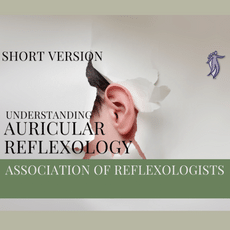
Source – Reflexions; Summer 2023. Written by Kate Mulliss
A long-term condition is defined as an illness that cannot be cured and is more than likely to be controlled with medication or other treatments.
The Patients Association estimates that about 15 million people in England have a long- term condition. Common (but not necessarily all) long term health conditions can be categorised as any of the following:
- Alzheimer’s disease or other cause of dementia
- Arthritis or ongoing problem with back or joints
- Autism or autism spectrum condition
- Blindness or partial sight
- A breathing condition such as asthma or COPD
- Cancer (diagnosis or treatment of)
- Deafness or hearing loss
- Diabetes
- A heart condition such as angina or atrial fibrillation
- High blood pressure
- Kidney or liver disease
- A learning disability
- A mental health condition
- A neurological condition such as epilepsy and stroke (which affects day-to-day
life)

The term multimorbidity is used when individuals have two or more long-term conditions, which complicates care approaches because of the nature of the different conditions and how their treatments often interact in complex ways. It is estimated that around one in four people have two or more long-term conditions, and unfortunately, multimorbidity is now becoming the norm. While long-term illnesses have disease-specific symptoms such as joint
inflammation, shortness of breath, dizziness, weakness, stiffness etc, they invariably also go hand in hand with “invisible symptoms” such as pain, low mood, anxiety and fatigue.
Individuals can have elevated stress levels about the illness itself and how it can/might affect everyday life from such things as getting up, travelling to work, the ability to focus and concentrate on tasks, and looking after younger family members, in addition to possible physical changes that may result from a condition. Stress can build up, leading to frustration, anger, hopelessness and possible depression, and these emotional and psychological issues can impact how well individuals cope and deal with an illness.
Reflexology approach to supporting clients with long term conditions

When communicating with a client with a LTC, we need to be clear about the role that reflexology has in supporting them with their issues. The first thing to remember is that we are not treating the condition but supporting that individual as a whole (holistically). As a complementary therapy, reflexology can certainly be used alongside standard medical care. While various theories exist as to how it exerts an effect, the therapy
undoubtedly provides the client with an opportunity to receive relaxation and supportive touch on a one-to-one basis in an emphatic and non-judgemental listening environment. It could be suggested that, in general terms, there is no “standard treatment plan” for clients with LTCs, due to the complexity of symptoms which are experienced, and which may be experienced differently in clients with the same diagnosis. The approaches to reflexology are discussed in a separate article.
Reflex suggestions to support clients with specific complaints often associated with long-term conditions
| Client Complaint | Suggested Reflexes Areas to Work |
|---|---|
| General Fatigue: Fatigue that is not relieved by adequate rest or sleep will undoubtedly lead to other or worsening health care issues such as reduced physical activity and inability to focus or concentrate. | Diaphragm, solar plexus, spine, all the endocrine glands, especially the pituitary, thyroid and adrenals For Brain Fog/Loss of focus and concentration: Diaphragm, solar plexus, spine, brain area, Hypothalamus, all the endocrine glands especially the pituitary and adrenal |
| Poor Sleep Quality/Insomnia Are there any issues resulting in poor sleep quality (ie blocked sinuses/cough/headaches/anxiety)? Does the client have a bedtime routine? Look at bedtime rituals that clients could use to support more restful sleep and sleeping patterns. | Main Solar plexus, diaphragm, brain, pineal, pituitary Support All toes, lungs/chest, shoulder, and neck Include lots of relaxation techniques |
| Low Mood & Depression Is the client’s mood associated with feelings of lethargy and tiredness, or is the client “tired but wired”? Are feeling associated with particular thoughts about their condition? | Main Brain, pituitary, and entire spine (nervous system) Support Solar plexus, diaphragm, all endocrine glands |
| Memory and Concentration When does the client notice issues with memory and concentration (morning or later in the day)? Do they participate in particular activities that make these worse? How does this affect their daily life and activities? | Main Brain and tops of the toes, all glands Support Lungs, spine, diaphragm |
| Headaches Can the client identify the cause of the headache? Is it related to stress and tension or possibly to infection such as sinusitis? Is the headache constant or worse at different times of the day? Is there anything that brings relief from the headache? | Main Head (entire big toe), neck, brain, spine Support Jaw, arm, shoulder, chest, solar plexus, (reproductive), all glands |
| Musculoskeletal pain How does the client refer to and describe the pain? Is it constant or worse at different times of the day? Does it ease with movement or made worse for by activity? What action (if any) helps relieve the pain? | Main Focus on the joint or area causing concern Support Spine, adrenals, brain |





